In a world where students can learn calculus from their couch and teachers can grade papers in their pajamas, edtech marketing is the secret sauce that makes it all happen. With technology revolutionizing education faster than you can say “digital classroom,” companies need to stand out in a crowded marketplace. It’s not just about having the latest app; it’s about crafting a message that resonates with educators and learners alike.
Table of Contents
ToggleUnderstanding Edtech Marketing
Edtech marketing encompasses tailored strategies that promote educational technology products and services. It focuses on connecting educators and learners through engaging messaging.
What Is Edtech Marketing?
Edtech marketing targets specific audiences within the education sector. It emphasizes the promotion of digital tools, platforms, and resources designed to enhance learning experiences. This type of marketing utilizes various channels, such as social media, email campaigns, and content marketing, to reach its goals. Successful campaigns often highlight the benefits of using technology in the classroom, providing real-life examples of improved outcomes. It creates a dialogue between vendors and users, facilitating feedback that refines products and messaging.
Importance of Edtech Marketing in the Education Sector
Edtech marketing holds significant weight in the competitive education landscape. Effective marketing informs educators and institutions about available solutions that enhance teaching and learning. It also addresses the unique challenges faced by schools and districts, such as budget constraints and the need for personalized learning experiences. Successful marketing strategies help build brand recognition, establishing trust among educators. By aligning marketing efforts with the needs of the education community, companies can create tighter connections with their audience, leading to increased adoption rates and sustained growth.
Strategies for Effective Edtech Marketing

Effective edtech marketing relies on innovative strategies to connect with educators and learners. Focusing on tailored methods enhances engagement and communication.
Content Marketing Techniques
Content marketing techniques play a crucial role in edtech marketing. Creating valuable resources like blogs, guides, and videos attracts attention from educators. He or she can implement case studies showcasing successful technology integration in classrooms. These resources educate potential users about the benefits of edtech products. Utilizing SEO best practices increases visibility on search engines, ensuring that relevant audiences discover the content. Regular updates keep the audience informed about new trends, demonstrating authority in the field.
Social Media Engagement
Social media engagement serves as an essential strategy for reaching educators. Platforms like Twitter and LinkedIn enable direct communication with the education community. Sharing informative content, such as infographics and testimonials, sparks interest. He or she can host webinars to foster interaction and deliver insights into product features. Building communities around specific topics encourages discussions that generate valuable feedback. Engaging users through polls and Q&A sessions can help companies understand their audience better. Frequent interaction strengthens brand presence and trust within the education sector.
Challenges in Edtech Marketing
Edtech marketing faces unique challenges that stem from a competitive landscape and evolving educational needs.
Competition in the Edtech Space
Many companies vie for attention in the edtech market. With a growing number of startups and established firms, differentiation becomes crucial. Effective branding strategies help companies showcase their unique value propositions. Innovative solutions often get lost in the noise, making clear messaging essential. Stakeholders seek not just new tools but meaningful results. Companies must invest in targeted outreach to break through the clutter and establish a foothold.
Understanding Target Audience’s Needs
Identifying the specific needs of educators and students poses a significant challenge. Comprehensive research helps companies grasp varied learner demographics and technological preferences. Engaging users through surveys and feedback sessions provides critical insights. Through these channels, marketers discover which features resonate most. Fostering a community allows for ongoing dialogue and refinement of offerings. Tailoring communications based on this understanding enhances engagement and conversion rates.
Case Studies of Successful Edtech Marketing
Successful edtech marketing exemplifies innovative strategies that resonate with educators and students alike. Companies that effectively communicate their value drive engagement and foster growth in the education sector.
Example 1: Company Overview
XYZ Learning offers a unique platform designed to enhance student engagement through interactive content. Founded in 2018, it focuses on K-12 educators seeking tools that promote active learning. The company operates on a subscription model, allowing easy access to resources for educators across multiple disciplines. Its mission emphasizes creating a dynamic classroom environment, empowering teachers to deliver impactful lessons. XYZ Learning’s user-friendly approach ensures educators can comfortably integrate technology into their teaching practices.
Example 2: Key Strategies Employed
Targeted content marketing plays a pivotal role in XYZ Learning’s strategy. It creates engaging resources such as blogs, videos, and webinars to showcase its platform’s benefits. Social media channels, particularly LinkedIn and Twitter, serve as primary communication tools, facilitating direct interaction with educators. Feedback loops through surveys help refine messaging and improve product offerings. Utilizing SEO best practices increases online visibility, ensuring its content reaches a broader audience. Partnerships with educational institutions provide additional credibility and extend brand awareness within the education community.
Future Trends in Edtech Marketing
Emerging trends in edtech marketing shape how companies reach educators and students. Innovations continue to drive this evolution, influencing strategies and tactics.
Innovations to Watch
Artificial intelligence (AI) plays a pivotal role in personalizing learning experiences. Companies increasingly use AI for adaptive learning solutions that cater to individual needs. Virtual reality (VR) and augmented reality (AR) technologies enhance engagement through immersive learning environments, attracting attention in schools and institutions. Interactive learning platforms that facilitate collaboration are gaining traction, allowing students to engage with content dynamically. Furthermore, data analytics applications provide insights into user behavior, enabling marketers to refine their strategies and improve targeting.
Predictions for Market Growth
Edtech market growth projections indicate a robust trajectory, forecasting an annual increase of 16.3% through 2025. Investment in edtech continues to rise, with estimates reaching $404 billion globally by 2025. The increasing demand for remote learning solutions fuels this expansion. Enhanced marketing strategies focusing on user engagement contribute significantly to brand loyalty. Adapting to shifting educational needs will remain essential for companies aiming to capture market share. Stakeholders in education will demand solutions that not only improve learning outcomes but also align with budget constraints, ensuring sustained growth in the edtech sector.
Effective edtech marketing is essential for navigating the competitive landscape of educational technology. By understanding the unique needs of educators and students, companies can craft compelling messages that resonate deeply. Innovative strategies such as targeted content marketing and active social media engagement not only enhance brand visibility but also foster trust within the education community.
As the edtech sector continues to evolve with advancements in technology, staying ahead of trends will be crucial. Companies that adapt their marketing approaches to meet the changing demands of educators and learners will position themselves for long-term success. Embracing these strategies can lead to increased adoption rates and a stronger presence in the marketplace.




